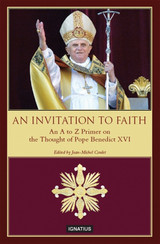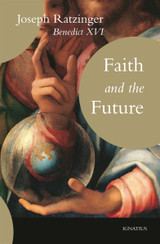Product Overview
This ebook cannot be sold to the United Kingdom.
A biographical survey of influential atheists of the past four centuries shows that this "defective father hypothesis" provides a consistent explanation of the "intense atheism" of these thinkers. A survey of the leading defenders of Christianity over the same period confirms the hypothesis, finding few defective fathers. Vitz concludes with an intriguing comparison of male and female atheists and a consideration of other psychological factors that can contribute to atheism.
Professor Vitz does not argue that atheism is psychologically determined. Each man, whatever his experiences, ultimately chooses to accept God or reject him. Yet the cavalier attribution of religious faith to irrational, psychological needs is so prevalent that an exposition of the psychological factors predisposing one to atheism is necessary.
Editorial Reviews
"Vitz offers a radical new thesis about the psychological origins of atheism. By studying the lives of numerous famous atheists, from the old atheists Nietzsche, Sartre, and Freud to the new atheists Hitchens, Dawkins, and Dennet, Vitz discovers a startling common pattern: atheism arises in people with dead, absent, or abusive fathers. By contrast, prominent defenders of religious belief-including Blaise Pascal, John Henry Newman, and G.K. Chesterton-were blessed with attentive, loving and caring fathers. Vitz's provocative book raises important questions about psychology, religious belief, and the importance of fathers."
- Christopher Kaczor, Author, The Seven Big Myths about the Catholic Church
- Benjamin Wiker, Author, Architects of the Culture of Death p>"In deploying Freudian theory against atheism itself, Paul Vitz has proven beyond a doubt what's missing from secular accounts of secularization: namely, actual human beings. His thesis is intellectual jujutsu of the first order, as anyone reading this timely revisiting will appreciate in full."
- Mary Eberstadt, Author, The Loser Letters and Adam and Eve after the Pill
"Paul C. Vitz has republished one of the most profound books in the emperical psychology of religion, Faith of the Fatherless, now with additional data. Here he skillfully demonstrates objective analogies between the family experiences of articulate atheists and their pronouncements concerning the family of God. Of course, since there is "nothing" more personal than God-and our beliefs and relationships to God-our capacities for personal relationship matter tremendously in the formation of our divine beliefs. Everything is interconnected, we know. However, Prof. Vitz's engaging style makes his demonstration of these objective analogies especially memorable and useful for understanding unbelief and ourselves."
- Paul de Vries, PhD, President, NY Divinity School
- Eric L. Johnson, PhD, Director, Society for Christian Psychology







